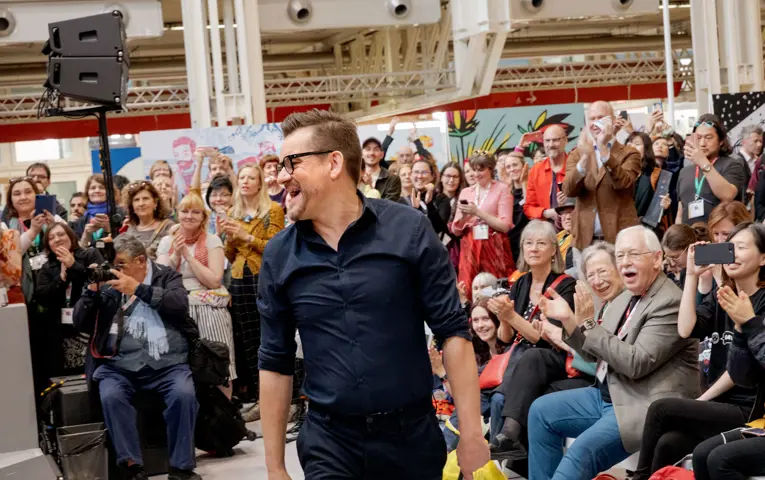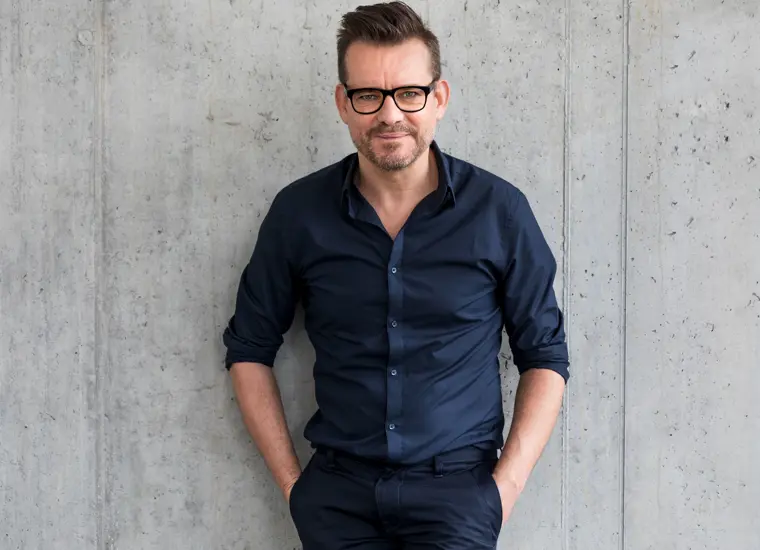
Interview with Bart Moeyaert
He grew up as the youngest of seven brothers and that has shaped him as a writer. At the book fair in Bologna, just hours after the announcement, Bart Moeyaert talks about his writing.
How did you become a storyteller?
− I was the youngest child in a big family and so I listened to everyone else’s stories. I learned to listen carefully. Later I began to feel that writing was safer than talking, because I liked to take my time and think about things before I said them. Books fascinated me from the moment I discovered them. They fascinated me as objects. When I learned to read, reading books was like breathing.
How would you describe your books?
− Difficult question! People say reading my books is like reading a movie, that my writing is poetic, that they find meaning by reading slowly, in between the lines. But I don’t think about that when I write. It’s just my way of telling a story.
What do you want to say with your stories?
− My stories come from inside me so the way I see the world comes through. I don’t want to just describe my characters, I try to find their voices, find a musicality. One of the things I find important, namely to be seen and listened to, is a recurring theme in what I write. It’s not my aim to write about inclusion, but I do. Because I was the youngest in a big family, I always fight for the smallest or weakest. When I see something that isn’t right, I stand up.
Why is literature for children and young people so important?
− Ten years ago, I would have said that literature is just paper between covers. It doesn’t change things. A person has to wake it up. But now I believe that books can change the world and society. Literature broadens your mind and opens frontiers. Literature gives you a language to express yourself and say what you mean. Literature can make you feel angry, and that’s important, because it forces you to think.
Why is a prize like the Astrid Lindgren Memorial Award important?
These are hard times for children’s literature. We’re competing with images, movies. We have to square our shoulders and fight for good children’s literature.
How did you feel when you heard the jury’s decision?
− Over the moon! Astrid Lindgren has been an important part of my life from the beginning. When the prize was established, I was nominated, and it was wonderful. Then I was nominated again. And again, and again. Of course, you start to think “It will never happen”. So now that is has happened, I’m delighted.
How will this prize change you?
− Well, I hope it won’t! I want to finish my collection of poetry that is going to be published this October, so I’m working on as planned. But of course, to have this prize, to hear what the jury says, to know they see me and they see what I do—it’s like a huge hug. I’ll take that good feeling with me and keep on writing.
The interview was conducted in April, 2019.

A language that vibrates with emotions
Born in Belgium in 1964, Bart Moeyaert is a multi-award winning author who has written for children and young people since his debut at age 19. His large and diverse body of work encompasses over fifty titles, ranging from picture books and YA works to poetry, plays, song lyrics, television screenplays and essays.
Discover Bart Moeyaert